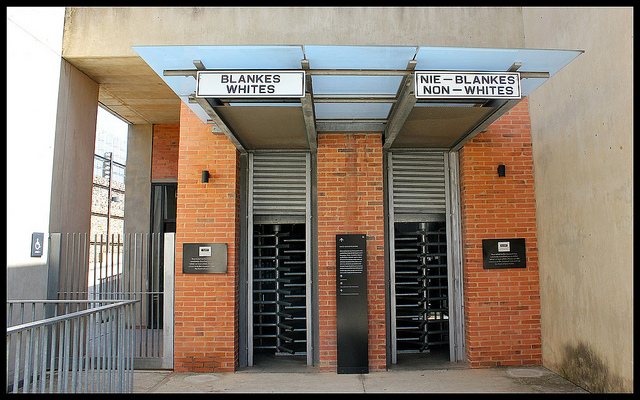Bridging the gap between school and community

**The Edvocate is pleased to publish this guest post on virtual reality and education as way to fuel important conversations surrounding P-20 education in America. The opinions contained within guest posts are those of the authors and do not necessarily reflect the official opinion of The Edvocate or Dr. Matthew Lynch.**
A guest post by Edward Varner
The relationship between schools and community is a complicated subject that can incorporate a myriad of voices in an often inharmonious discourse about culture, knowledge, and standards. While all of the primary stakeholders of education generally support the widespread belief that school improvement and student learning should include parent and community involvement, it is quite difficult to find consensus on the appropriate definition of community involvement. In their paper Schools and Communities as Contexts for Student Learning: New Directions for Research in Educational Leadership, Driscoll and Goldring ask, “How do leaders create bridges between the professional communities in their schools and the broader community interest in ways that improve learning” (Driscoll and Goldring, p. 9, 2003)? How can we bridge the gap between the needs and responsibilities/values established by mainstream, academic society (educators) with the needs and values of an often disparate community? I would suggest that music is one way to recognize the importance of preexisting knowledge and to make connections for understanding new learning. Driscoll and Goldring suggest a “new science of learning” that focuses on the central belief that new knowledge is “scaffolded onto pre-existing knowledge” (2003). Music readily connects pre-existing knowledge to new learning while simultaneously bridging the gaps of diversity within a community.
The gaps of diversity within a community become more evident as school realities move away from the traditional understanding of the word community. Traditional conceptions and “understandings of community imply homogeneity, self-containment, and commonality of interests” (McInerney, 2002). This view often denies the complexity and diversity of the people residing in a given community. The reality is that people live in many different conceptual ideals of community. McInerney cautions that the use of a conventional understanding of community often infers “insiders and outsiders, inclusion and exclusion, us and them, centres and margins” (McInerney, 2002). Music again acts as a natural bridge between isolationist conceptions of community and a broader view of community in search of global understanding. Music finds the common thread that connects human beings in a diverse world.
In addition to bridging gaps between cultures, “music stimulates synaptic growth and is a fun activity that lowers the affective filter of learners as they incorporate the language patterns and phonemes of English into their schemata” (Rennie-Varner, 2002). This principle concept of secondary language acquisition stands as a significant support rationale for more music in our schools. Research shows that vocal and instrumental music should no longer be viewed and used only for recreation or entertainment purposes. Music is also a practical tool for second language acquisition (Medina, 2000).
Why Administrators Need to Know?
In the shadow of the No Child Left Behind legislation, it is increasingly imperative that administrators, teachers, and parents unite to ensure that certain elements of the public schools are not placed on the backburner. I truly believe that our high stakes testing culture has created a “teach to the test” philosophy of education that fosters minimum standards, simplistic thought, and an isolationist culture (Kohn, 2000). I encourage administrators, teachers, and parents to become stronger supporters of the arts and the many other elements that come together to make a good school. These elements are often referred to as “extra-curricular” and are in danger of being lost if teachers are forced into only teaching to the minimum standards of reading, writing, and math skills that will be tested by a state mandated exam. It is ironic that many elements of a good school, like music and art, which are perpetually on the metaphorical chopping block, offer some of the strongest tools for reaching students. They offer an alternative approach to education that supports, reinforces, and expands traditional conceptions of education and improve the very scores that traditionalists seek to improve (Jensen, 2001).
Michael Fielding, in the article Community, philosophy and education policy: against effectiveness ideology and the immiseration of contemporary schooling, concludes that by failing to recognize the necessity of creating community together, we as educators fail to understand “the first priority in education” (Fielding, 2000). He explains that his understanding of the first priority of education is to learn how to live in personal relation with other people. Fielding bases his article on the work of Scottish philosopher John Macmurray as he focuses the school effectiveness discourse to the concept that to be educated is to be able to enter into personal relationships with others. Similarly, students who study music enter into personal relationships with others each time they endeavor to make music in an ensemble. Just as Fielding’s paper calls for an alternative educational policy perspective to education that centers on community, I believe that our current focus on high stakes testing is a seriously flawed intellectual endeavor that requires drastic action by an informed and hopefully outraged group of stakeholders.
Community Experiences and Narrative
In addition to being a viable and worthy academic discipline in its own right, music provides essential connections to early language acquisition as it attempts to connect with culture and community. Unfortunately, many educators and parents remain unaware of the value of music beyond its natural entertainment context. However, by its very nature, music meets people where they are as human beings and offers limitless opportunities for intellectual, spiritual, and community growth. Music tells the story of people. Music is a method that celebrates pre-existing knowledge, cultural diversity, and the pursuit of new ways to connect to student schemata of understanding.
__________________
Edward Varner has been an educator, musician, freelance percussionist, actor, and arts education specialist and advocate for more than 25 years. He has taught award winning K-12 music programs in California, Nevada, and Washington, presented workshops for the International Reading Association, National Association for Elementary School Principals, Hawaii International Conference on Education, Washington State OSPI, Pennsylvania Association of Independent Schools, and led many district in-services.






